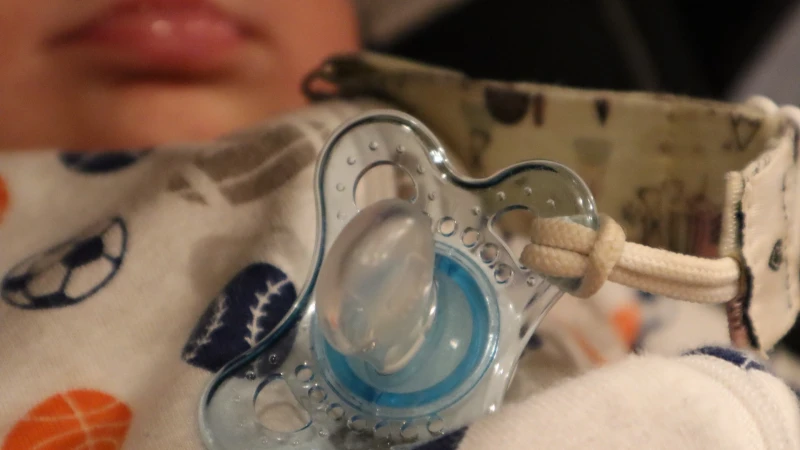Disclosure: This post may contain affiliate links, meaning we get a commission if you decide to make a purchase through our links, at no cost to you. Please read our disclosure for more info.
The sucking reflex in most newborns is extremely powerful. Some kids even chew their thumbs or fingers before they are even born, according to experts. Sucking has a calming impact on the body in addition to its nutritional benefits. Are pacifiers, on the other hand, really safe for your baby? Learn about the advantages and risks of using a pacifier, as well as safety precautions and how to wean your infant from using a pacifier. If you want to know more about pacifiers then you want to visit this site.
In This Post:
Let’s See Some Pros
Pacifiers are essential for some babies
in order to keep their content in between feedings. Take a look at the benefits:
- A pacifier may be useful in soothing a fussy baby. A baby’s most contented state is when they are sucking on something.
- A pacifier can be used to provide a temporary distraction. A pacifier may be used before, during, and after procedures such as injections, blood testing, and other tests.
- A pacifier may be beneficial in helping your infant go asleep. If your infant is having difficulties settling down, a pacifier may be the solution for him or her.
- Using a pacifier during flights may help to alleviate pain. When babies swallow or yawn to relieve ear pain caused by changes in air pressure, they are not considered to be purposely “popping their ears.” Sucking on a pacifier may be beneficial.
- It is possible that a pacifier will help to minimize the incidence of sudden infant death syndrome (SIDS). Sucking on a pacifier during naps and sleep may help to minimize the incidence of SIDS in children.
- Pacifiers are a one-time-use item. When it comes time to cease using pacifiers, they can be disposed of properly. Your child’s thumb or fingers may be more difficult to break if he or she sucks on them instead of the rest of his or her fingers.
Let’s See Some Cons
Of course, pacifiers have drawbacks. Consider the cons:
- Your baby may grow pacifier reliant. If your infant sleeps with a pacifier, you may wake up in the middle of the night because the pacifier fell out.
- Using a pacifier may raise the risk of M.E. Middle ear infections are most common from birth to 6 months, when the risk of SIDS is highest and your infant is most likely to want a pacifier.
- Constant pacifier use may cause teeth issues. Normal pacifier use in the first few years of life does not cause tooth issues. However, extended pacifier use may cause tooth misalignment.
- The use of pacifiers may harm nursing. If you’re breastfeeding, wait until your kid is 3-4 weeks old and you’ve established a nursing routine. An analysis of unrestricted pacifier usage in healthy full-term infants found no impact on breastfeeding.
Conclusion
Some babies use pacifiers to stay occupied between feedings. It can be used before, during, and after operations including injections and blood tests. It can also be used to distract newborns. Pacifiers are only used once. Using a pacifier during naps and sleep may help reduce SIDS. Moisturizers may increase the risk of ME (most common from birth to 6 months).

